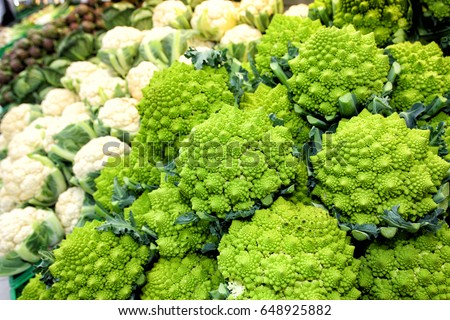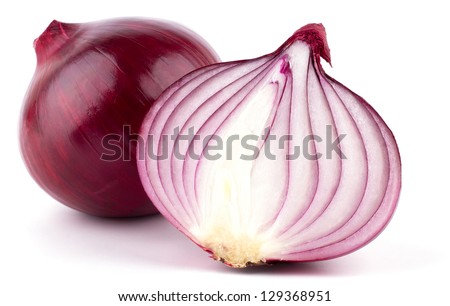Because of its beneficial effects on numerous aspects of health, cauliflower can easily be described as a superfood. Some of its most valuable health benefits include:
Cauliflower, which like broccoli is a member of the cruciferous family, contains an impressive array of nutrients, including vitamins, minerals, antioxidants and other phytochemicals. It's a good source of vitamin K, protein, thiamin, riboflavin, niacin, magnesium, phosphorus, fiber, vitamin B6, folate, pantothenic acid, potassium and manganese.

Cauliflower is also packed with natural antioxidants such as vitamin C, beta-carotene, kaempferol, quercetin, rutin, cinnamic acid and others. Antioxidants are nature's way of providing your cells with adequate defense against attack by excessive amounts of reactive oxygen species. As long as you have these important micronutrients, your body will be better equipped to resist damage caused by everyday exposures to pollutants, chronic stress and more.
Without an adequate supply of antioxidants to help squelch excess free radicals you raise your risk of oxidative stress, which leads to accelerated tissue and organ damage. Adding to cauliflower's appeal is its versatility. You can eat it raw, add it to salads or use it in your cooking. Cauliflower can even be seasoned and mashed as an alternative to potatoes.
Fighting cancer
Cauliflower contains the cancer-fighting compounds sulforaphane and isothiocyanates, the former of which has been shown to kill cancer stem cell responsible for metastasis or spread of cancer.
Boosting heart health
Sulforaphane in cauliflower also helps improve blood pressure and kidney function. Scientists believe sulforaphane's benefits are related to improved DNA methylation, which is crucial for normal cellular function and proper gene expression, especially in the easily damaged inner lining of the arteries (endothelium).
Lowering inflammation
Chronic inflammation is a hallmark of most disease. Cauliflower contains anti-inflammatory nutrients to help keep inflammation in check, including indole-3-carbinol, an anti-inflammatory compound that may operate at the genetic level to help prevent the inflammatory responses at its foundational level.
Boosting brain health
Cauliflower is a good source of choline, a B vitamin known for its role in brain development. It also helps improve cognitive function, learning and memory. It may even diminish age-related memory decline and your brain's vulnerability to toxins during childhood, as well as conferring protection later in life.
Supporting detoxification
Cauliflower helps your body's ability to detoxify in several ways. It contains antioxidants that support Phase 1 detoxification along with sulfur-containing nutrients important for Phase 2 detox activities. The glucosinolates in cauliflower also activate detoxification enzymes.
Aiding digestion
Cauliflower is an important source of dietary fiber for digestive health. But that's not all. According to the World's Healthiest Foods:
"Researchers have determined that the sulforaphane made from a glucosinolate in cauliflower (glucoraphanin) can help protect the lining of your stomach. Sulforaphane provides you with this health benefit by preventing bacterial overgrowth of Helicobacter pylori in your stomach or too much clinging by this bacterium to your stomach wall."
Facts Credit: mercola.com
Cauliflower, which like broccoli is a member of the cruciferous family, contains an impressive array of nutrients, including vitamins, minerals, antioxidants and other phytochemicals. It's a good source of vitamin K, protein, thiamin, riboflavin, niacin, magnesium, phosphorus, fiber, vitamin B6, folate, pantothenic acid, potassium and manganese.

Cauliflower is also packed with natural antioxidants such as vitamin C, beta-carotene, kaempferol, quercetin, rutin, cinnamic acid and others. Antioxidants are nature's way of providing your cells with adequate defense against attack by excessive amounts of reactive oxygen species. As long as you have these important micronutrients, your body will be better equipped to resist damage caused by everyday exposures to pollutants, chronic stress and more.
Without an adequate supply of antioxidants to help squelch excess free radicals you raise your risk of oxidative stress, which leads to accelerated tissue and organ damage. Adding to cauliflower's appeal is its versatility. You can eat it raw, add it to salads or use it in your cooking. Cauliflower can even be seasoned and mashed as an alternative to potatoes.
Fighting cancer
Cauliflower contains the cancer-fighting compounds sulforaphane and isothiocyanates, the former of which has been shown to kill cancer stem cell responsible for metastasis or spread of cancer.
Boosting heart health
Sulforaphane in cauliflower also helps improve blood pressure and kidney function. Scientists believe sulforaphane's benefits are related to improved DNA methylation, which is crucial for normal cellular function and proper gene expression, especially in the easily damaged inner lining of the arteries (endothelium).
Lowering inflammation
Chronic inflammation is a hallmark of most disease. Cauliflower contains anti-inflammatory nutrients to help keep inflammation in check, including indole-3-carbinol, an anti-inflammatory compound that may operate at the genetic level to help prevent the inflammatory responses at its foundational level.
Boosting brain health
Cauliflower is a good source of choline, a B vitamin known for its role in brain development. It also helps improve cognitive function, learning and memory. It may even diminish age-related memory decline and your brain's vulnerability to toxins during childhood, as well as conferring protection later in life.
Supporting detoxification
Cauliflower helps your body's ability to detoxify in several ways. It contains antioxidants that support Phase 1 detoxification along with sulfur-containing nutrients important for Phase 2 detox activities. The glucosinolates in cauliflower also activate detoxification enzymes.
Aiding digestion
Cauliflower is an important source of dietary fiber for digestive health. But that's not all. According to the World's Healthiest Foods:
"Researchers have determined that the sulforaphane made from a glucosinolate in cauliflower (glucoraphanin) can help protect the lining of your stomach. Sulforaphane provides you with this health benefit by preventing bacterial overgrowth of Helicobacter pylori in your stomach or too much clinging by this bacterium to your stomach wall."
Facts Credit: mercola.com



